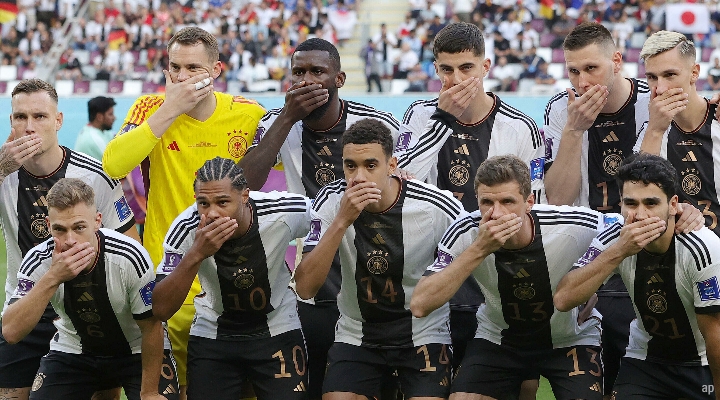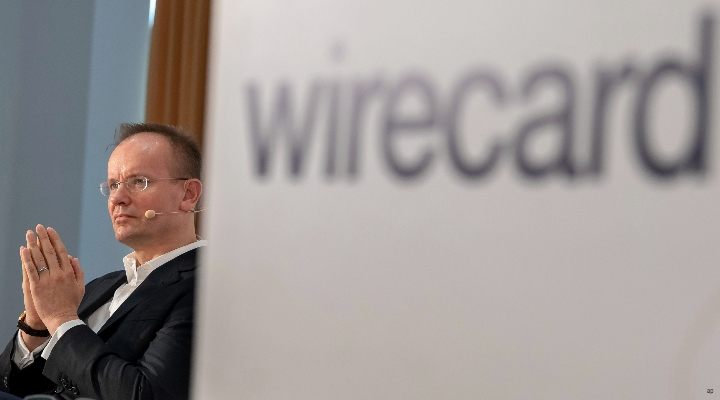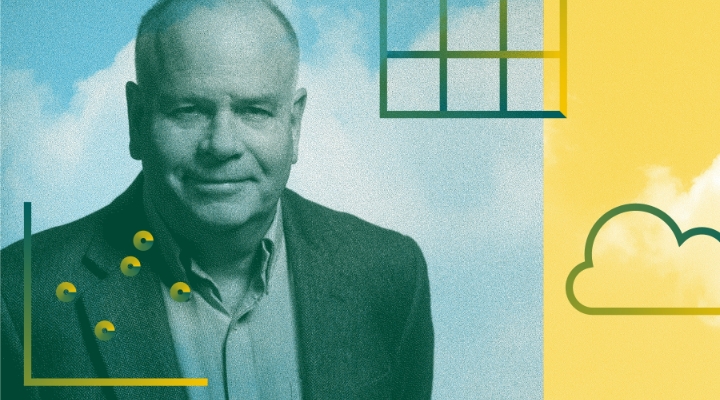
From Manchester United being put up for sale to Cristiano Ronaldo’s ill-timed non-fungible token, football is intersecting with business more than ever. That’s no more obvious than at the World Cup, which is now approaching the end of its second full week.
As with the Queen’s passing, everyone has an opinion on Qatar's host status, especially from a human rights perspective. I’m going to (largely) sidestep these tricky ethical questions (should you even watch? Should you boycott the sponsors?) and ask if there’s anything investors can glean from these weeks of football.
EM Gathers Strength
Whether you agree with Qatar being awarded the tournament in the first place, it’s hard not to observe this example of an emerging market flexing its muscles on the global stage.
This follows Russia, Brazil and South Africa – none of whom would be likely to win a "best- governed country" trophy any time soon. Like the Olympics, the World Cup effect can be shortlived financially, but tends to lay down a marker in terms of a country’s profile. Emerging market brands, from India’s BYJU to China’s Hisense, are now getting unprecedented exposure via match billboards. The world is watching.
For advocates of human rights and equality, the uncomfortable truth is that the Ukraine war has given petro-states like Qatar and Saudi Arabia a shot in the arm.
Witness Saudi Aramco, one of the biggest companies in the world, sponsoring Formula One, but dropping the "Saudi" in its branding. A similar debate about the nexus of money, liberal values and sport is being played out in that arena as well.
For investors, emerging market (EM) countries may be gathering strength – but for the ethical investor it may not be enough to buy a tracker and hope for the best.
In the future, you may have to cherrypick your EM exposure very carefully indeed – but that leads you down the route of selecting single-country funds, which are inherently riskier than a "catch-all" emerging or frontiers market fund, whether active or passive. India and China are both emerging market powerhouses, and display political leanings unpalatable to some investors. You might not want all your eggs in one of those baskets.
You Don’t Always Get What You Want
As England and Germany players discovered last week, even feted multimillionaire sportsmen get overruled. At least Germany's team protest (players put their hands over their mouths to show they'd been silenced) made a visual impression. Before the tournament, Denmark team sponsor Hummel had started the bidding by creating faded logos in protest at human rights issues in Qatar, as well as the country's controversial labour laws. From that point onwards it was reasonably obvious things were going to heat up.
We’re not party to the internal discussions between FIFA, Qatar authorities and national team managers, but one can imagine some very heated discussions about rights and responsibilities. Likewise, one can only imagine the conversations that occurred in Camp Beckham when comedian-turned-activist Joe Lycett apparently threatened to shred £10,000 if the former England star didn't withdraw from his sponsorship deal with the Qatari authorities. In the end it turned out the idea wasn't quite what it seemed (and for good reason), but such incidents show repeatedly that sports stars sit in the uncomfortable no-mans-land between politics and entertainment.
Ultimately, in the case of Qatar, money has beaten morality. As an ESG investor, this will leave a bitter taste. The prevailing trend is for "change through engagement", as though a country can be persuaded to mend its ways if you create the right meaningful dialogue.
Countries are often less malleable than public corporations, however. In the west at least, the latter can be brought to heel by shareholders and the public. Likewise, emerging countries may have lots of wind and solar farms, but may not fit neatly into Western notions of what constitutes good "G" and "S" practice.
As such, different cultural and religious norms may make the world more interesting, but can be frustrating for fans of democracy and social progress. We saw this when hopes for "progress" were thwarted by reality during the Arab Spring crisis. A similar chain of events is currently playing out in Iran, where the West may see the "wrong side" win again.
Governance Questions are Everywhere
Sustainable investing also teaches us that scrutiny and exposure are good ways of highlighting injustice and persuading bad actors to change. There’s also a contrarian argument that countries away from the public eye, like North Korea, can get away with more than those suddenly thrust into the limelight like Qatar. The suggestion by one commentator that Qatari officials are now frustrated with the negative press coverage their nation has attracted certainly raises eyebrows. But Every organisation involved in public events has to face the music eventually. Sometimes you don't get what you thought you were getting.
FIFA is one of these too, and the media has not been sparing in looking at the messaging by current president Gianni Infantino. To be clear, FIFA is not a public company and has no shareholders to please – otherwise Infantino’s bizarre speech defending Qatar may have triggered a fall in its share price. But in the public’s view, bodies like FIFA can be judged by roughly similar standards. And as crypto billionaires have discovered recently, the law applies to everyone. The US Department of Justice can be relentless.
Experience and Diligence Matters
Swerving back from FIFA to the football itself, it’s worth looking at the managers too. The financial and political worlds are dominated by egotism and publicity-seeking actors.
Witness the drama over the Twitter takeover and the media’s staggering reverse ferret over Sam Bankman-Fried and even Elizabeth Holmes. But football also contains a fair few leaders quietly getting on with their job: France’s Didier Deschamps and England’s Gareth Southgate, for example. Neither is a tremendously charismatic speaker, but as former players, both know their sport inside out, and are skilled at getting the most from teams.
England and France may not win the World Cup but you can bet these managers will have been able to extract more "value" out of their squads than they would a group of 11 talented individuals. It’s the same with chief executives and fund managers. Many are great speakers but lack the magic touch with their teams, are not on top of the numbers and the granular detail of the business. So next time you see a "charismatic visionary" on the cover of Time magazine – or see a "star manager" touted in the Sunday papers – it may be a signal to "avoid" the business – and choose one run by a Southgate type instead.
James Gard is a senior editor at Morningstar








.jpg)


:quality(80)/cloudfront-us-east-1.images.arcpublishing.com/morningstar/6BCTH5O2DVGYHBA4UDPCFNXA7M.png)

















